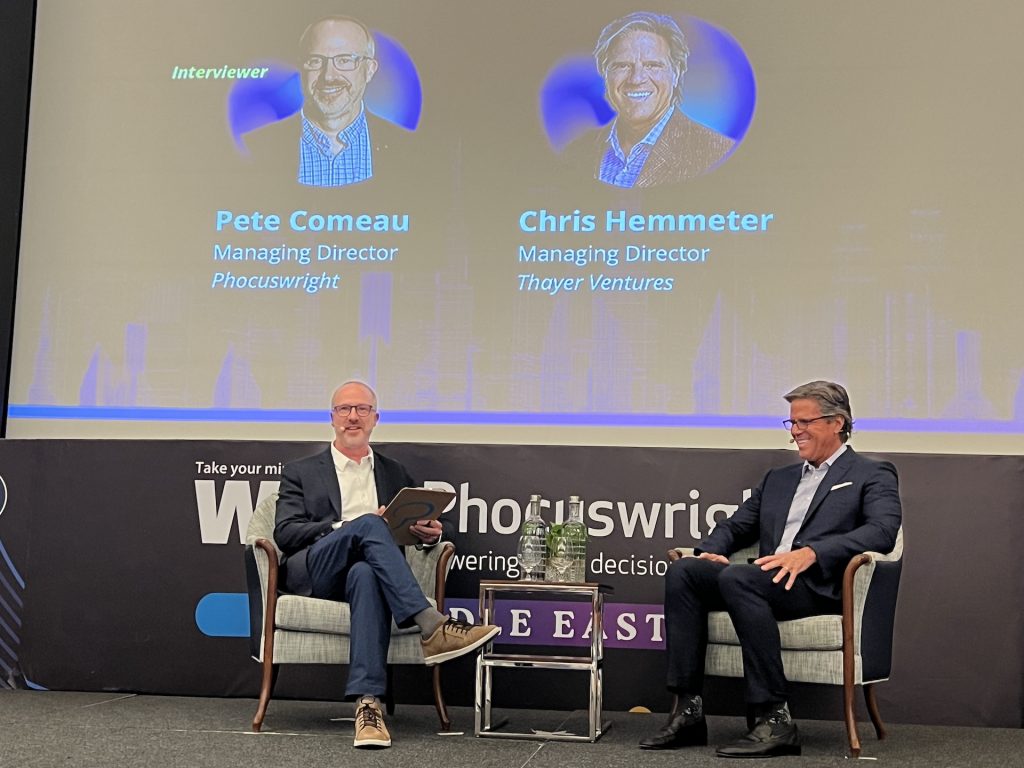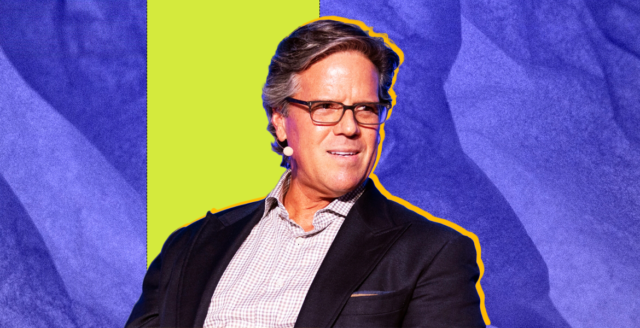AI or no AI, new tech or old tech, teams still make all the difference between success and failure in a startup, said Chris Hemmeter, c0-founder and managing director of Thayer Ventures, in a wide-ranging interview with Pete Comeau, managing director of Phocuswright at Phocuswright Middle East 2024 recently.

Pete Comeau and Chris Hemmeter on stage in Dubai: “Fail fast, act fast – the kiss of death is being a zombie company.”
The head of the venture capital firm investing in technology companies in the travel and transportation said, “Great ideas go sideways because of bad teams. Bad ideas become good ideas because of great people. Humans make all the difference.”
He also advised against startups hiring from tech giants such as Microsoft or Google. “You don’t want to create a nest of the same people. You want to assemble teams of interesting people with different skill sets and perspectives.”
Whatever it is, he said, “Make sure you are not building a zombie company. Fail fast, act fast – the kiss of death is being a zombie company.”
As for how much experience in category counts towards the success or failure of a travel startup, Hemmeter said domain expertise is critical especially in hospitality “because of the strange ecosystem of owners, managers and franchises” but on the downside, “industry insiders just see things the way it’s always been. Sometimes someone from outside can give a fresh perspective”.
It is dangerous to think travel is easy though for startups and investors. “It is tough for early-stage startups. The reality is the repricing of capital is having a dramatic ripple effect on private investing. That capital cycles through.”
He said he felt for sorry for the “poor entrepreneurs building companies because their goal posts just got moved. One party is in it to pivot to cash flow positive; the other is in it for the longhaul. It is really hard to build a company now and those entrepreneurs who are really doing it, they are the real deal.”
In terms of the Middle East, he said capital markets in the region were a bit undeveloped. “There are massive pools of funds, but they are not helping startups. There are no early-stage funds of between $100, and $150m. What’s missing is the middle layer of capital. You need smaller, nimble funds to build a vibrant ecosystem of startups.”
He said that AI would bring about major platform shifts. “For a lot of businesses, AI is worthless if it sits on a pile of useless data. In hospitality, there is a long history of antiquated tech, silos of data – the idea that we can plop AI on top of that is wishful thinking.”
There are also big questions on “where are we going with customer engagement”.
“We have 52-55% (customers) discovering in social, are they leaving search? AI is beginning to change the nature of search; this will have profound impact on companies getting traffic from the OTAs.”
He observed that “OTAs in Asia have a lower penetration of branded hotels and there is room for growth in online adoption. How AI will impact this funnel is interesting”.
He predicts a “bloody battle” ahead.
“The big intermediaries are very expensive for travel suppliers, with their reams of data and army of engineers. They pour enormous capital into search and marketing; they’ve taken all the air out of the room for consumer travel businesses.
“But this is changing. With younger, Gen Z travellers emerging, there is room for niche OTAs to surface. What we don’t know is whether AI-driven search will accrue benefits to Google and those who play the game well such as Booking and Expedia – that fly wheel is unfair. Or will AI and social and things that we don’t even see now break things up and make retail in travel more interesting?”




